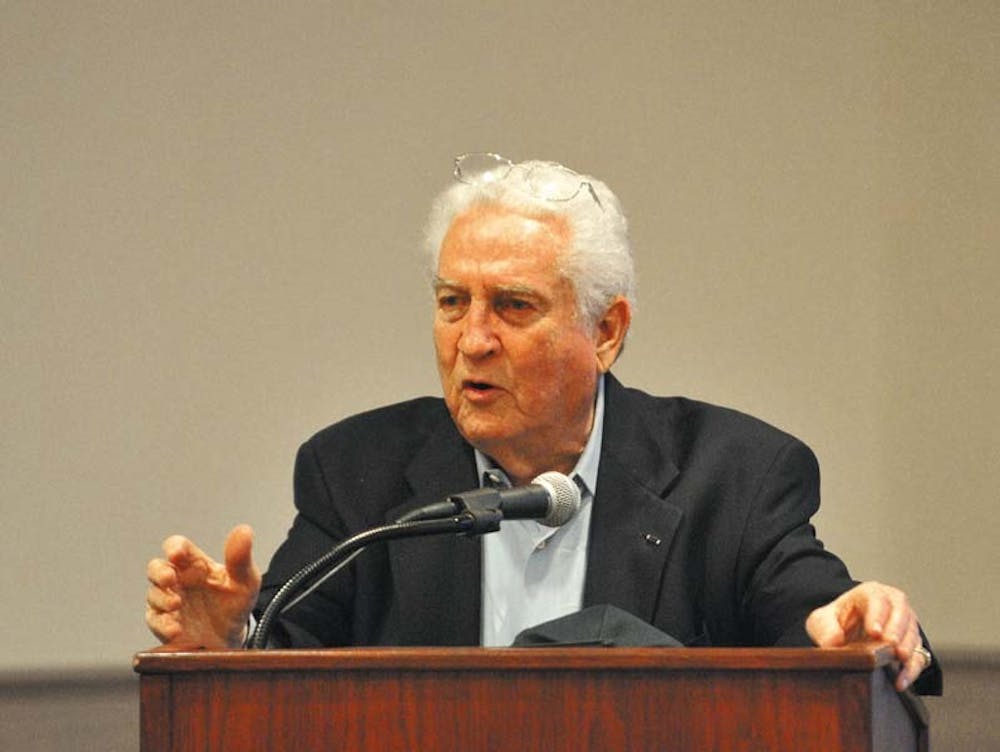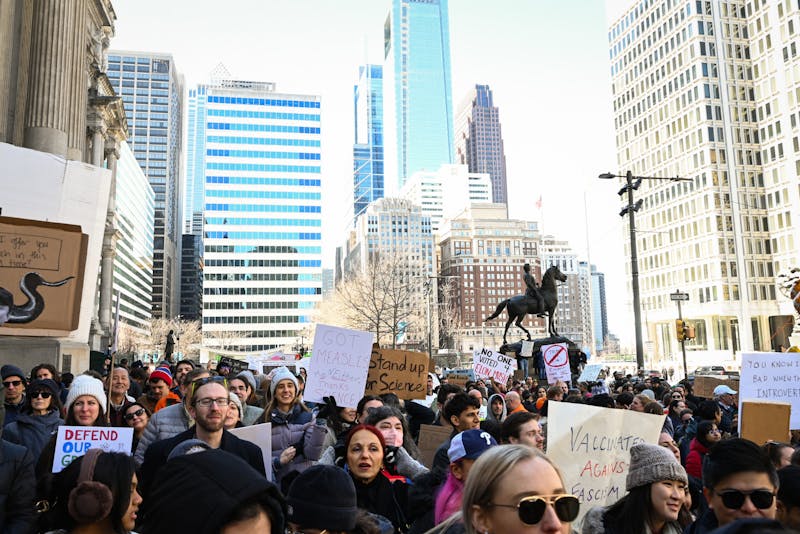
Almost 70 years after the liberation of the Dachau concentration camp, a survivor and his liberator shared their experiences at Penn Hillel last night.
World War II veteran and Dachau liberator Don Greenbaum and Holocaust survivor Ernie Gross were invited by the Holocaust Education Committee at Hillel to share their stories with Penn students and faculty.
“As the last generation to interact with Holocaust survivors and liberators, it is important for us to keep the memory and discussion of Shoah alive,” College sophomore and Daily Pennsylvanian copy assistant Monica Osher, one of the event’s organizers, said in an email.
With these objectives, the two speakers related their personal memories of the Holocaust with humor and solemnity. Greenbaum first recounted his experiences as a soldier during the war. He traced his journey from Normandy to the Battle of the Bulge and then to Dachau, Germany.
Greenbaum then described the scenes of the Dachau concentration camp. “The odor was sickly and bad,” he said. “Men were in pajama-tight clothes. We couldn’t feed them because they couldn’t digest hard food.”
One of those men in the concentration camp was the 16-year-old Gross. Taking the stage from Greenbaum, Gross shared his side of the story as a concentration camp survivor. Though the war ended almost 70 years ago, Gross described his experiences vividly, interjecting the grim stories with humorous lessons.
“I don’t read from notes. But I have a mental screen, and whatever I see I relate to you,” Gross began. “Sometimes it is sad. Sometimes it is humored. I have to mix humor in — if not I will break down.”
Gross also explained how his suffering in the camp shaped his mentality even after the Holocaust. To illustrate one of his points, he showed the audience a small loaf of bread.
“This bread was divided among eight people for a meal,” he explained. The prisoners drew lots to determine who got the smaller ends of the bread. Once, he saw a father — who had received a small piece — asking his son for his larger piece.
“The son said, ‘No,’” Gross recalled. “You had to be selfish if you wanted to survive.”
This selfish mentality remained with him long after the war, Gross said. “I was eating with my wife once, when she saw something on my plate and wanted to try. I said, ‘No.’”
“But I realized you cannot live with this mentality of selfishness,” Gross added. He then told how he made an effort to change this tendency by simple acts, such as supporting roadside vendors who sold flowers and drinks, even when he didn’t need those items.
The audience was alternately attentive to and amused by the speakers’ humorous tone in sharing their grim experiences. Some had relatives who were victims of the Holocaust, while others were just interested in the speakers’ histories.
“It’s important to listen to those who have been through the Holocaust,” Engineering doctoral candidate Sylvia Qu said. “We use the phrase ‘Never Again,’ but we must be aware that genocides in places like Sudan and Darfur still happen today.”
The Daily Pennsylvanian is an independent, student-run newspaper. Please consider making a donation to support the coverage that shapes the University. Your generosity ensures a future of strong journalism at Penn.
DonatePlease note All comments are eligible for publication in The Daily Pennsylvanian.







